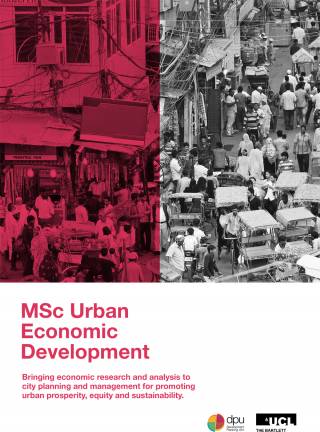Our UK practice engagement is a core component of our practice module, enabling students to develop a better understanding of the processes of managing economic development in a local UK context.
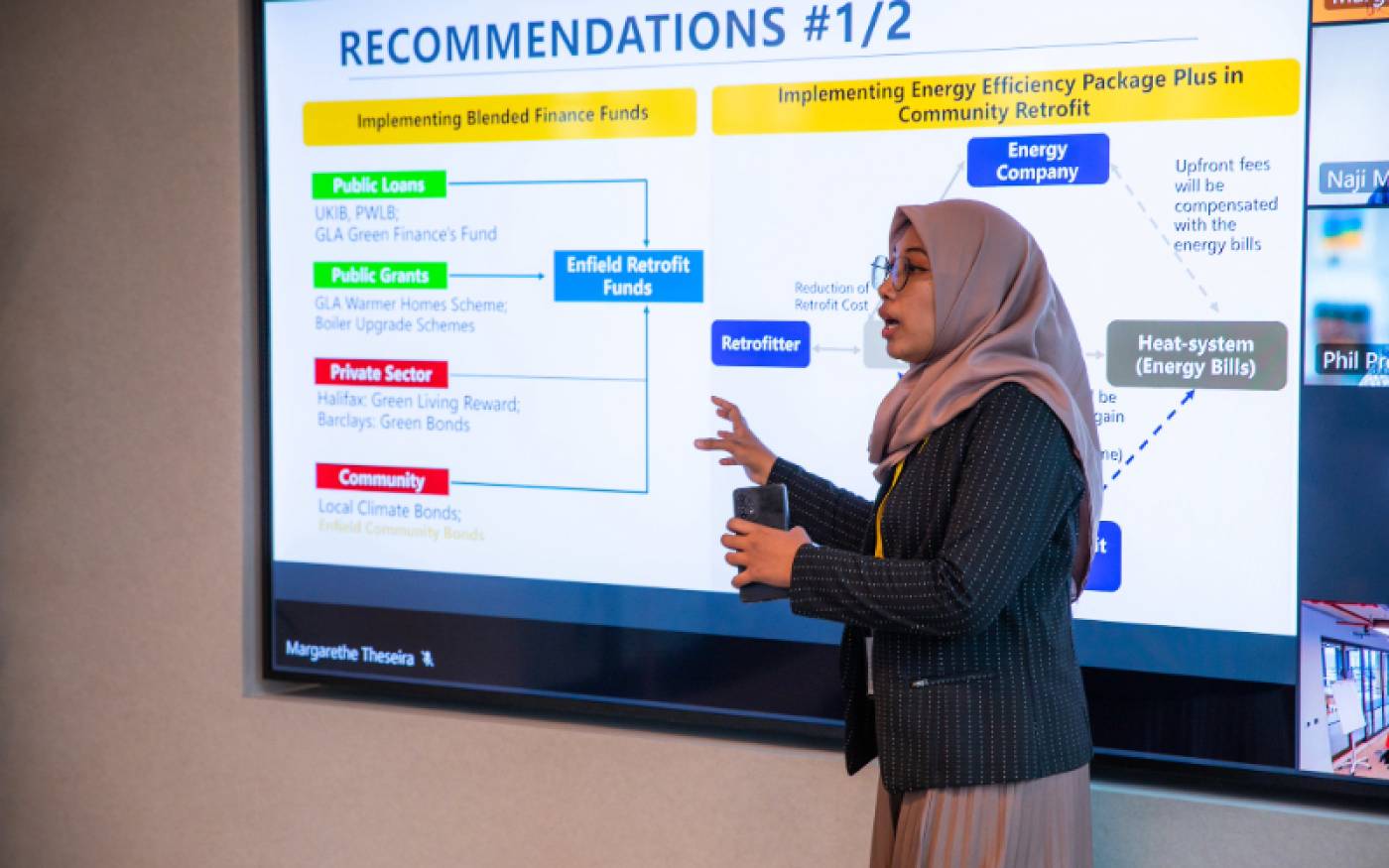
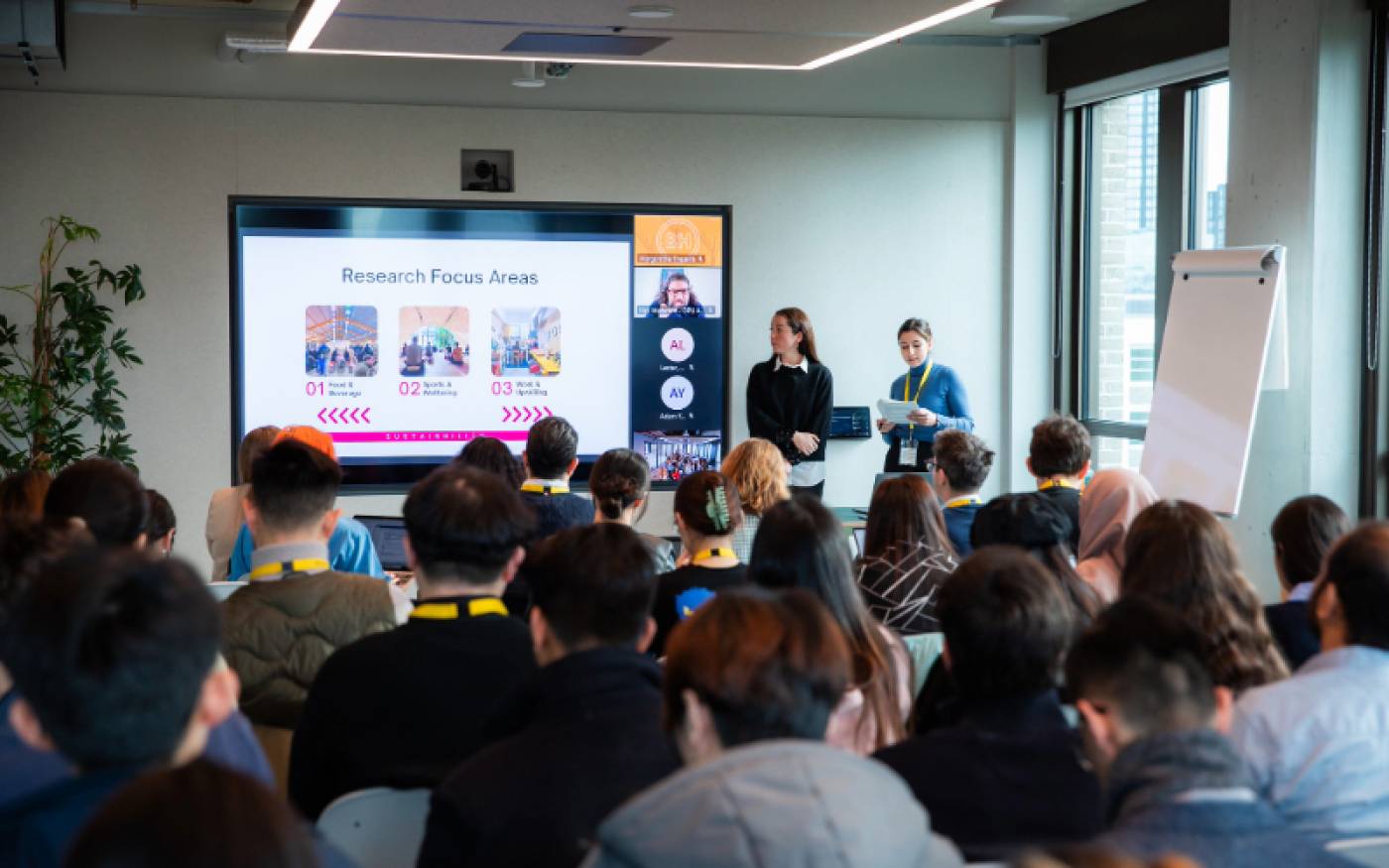
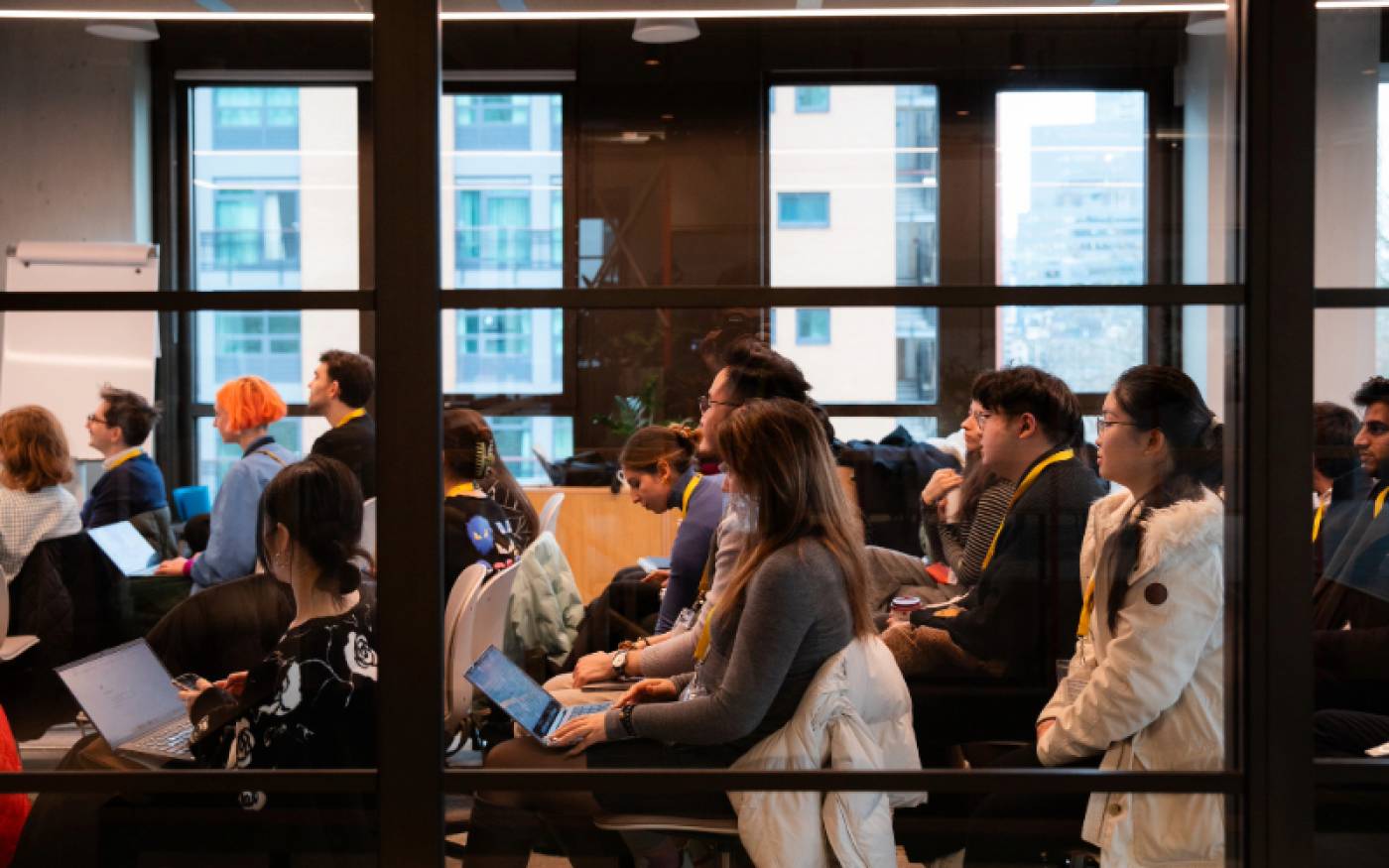
Our core practice module, 'Practice in Urban Economic Development', brings to life the challenges of advancing economic development in practice, enabling our Urban Economic Development (UED) MSc students to gain a better understanding of the real processes of managing economic development in developed and developing cities. In terms one and two of the academic year, our students root their understanding of urban economic development in the London context.
Each year, our UK practice engagement brings together our UED students with a range of stakeholders involved in London's economic development, including public authorities, government bodies and research organisations. Our students work together in teams as consultants and engage in fieldwork to collectively address London's most challenging issues today, and enhance their ability to work with a diverse range of group members.
To equip our students with the knowledge, techniques and skills required as development practitioners in urban economies, we ask our students stimulating research questions that they answer in collaboration with research partners, culminating in a range of research outputs. Discover the students' research outputs from previous years of London-based fieldwork.
The London Project 2023-24
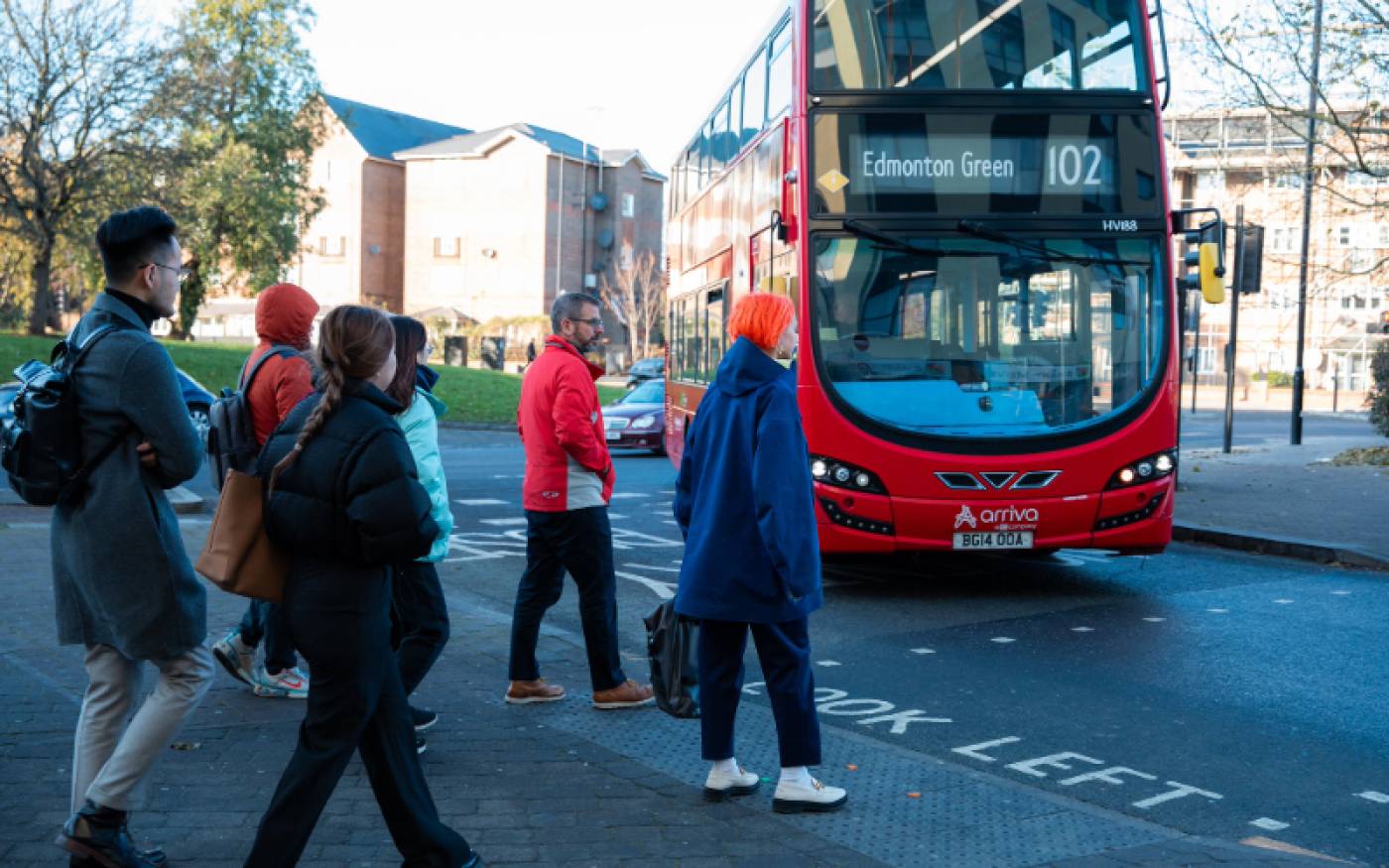
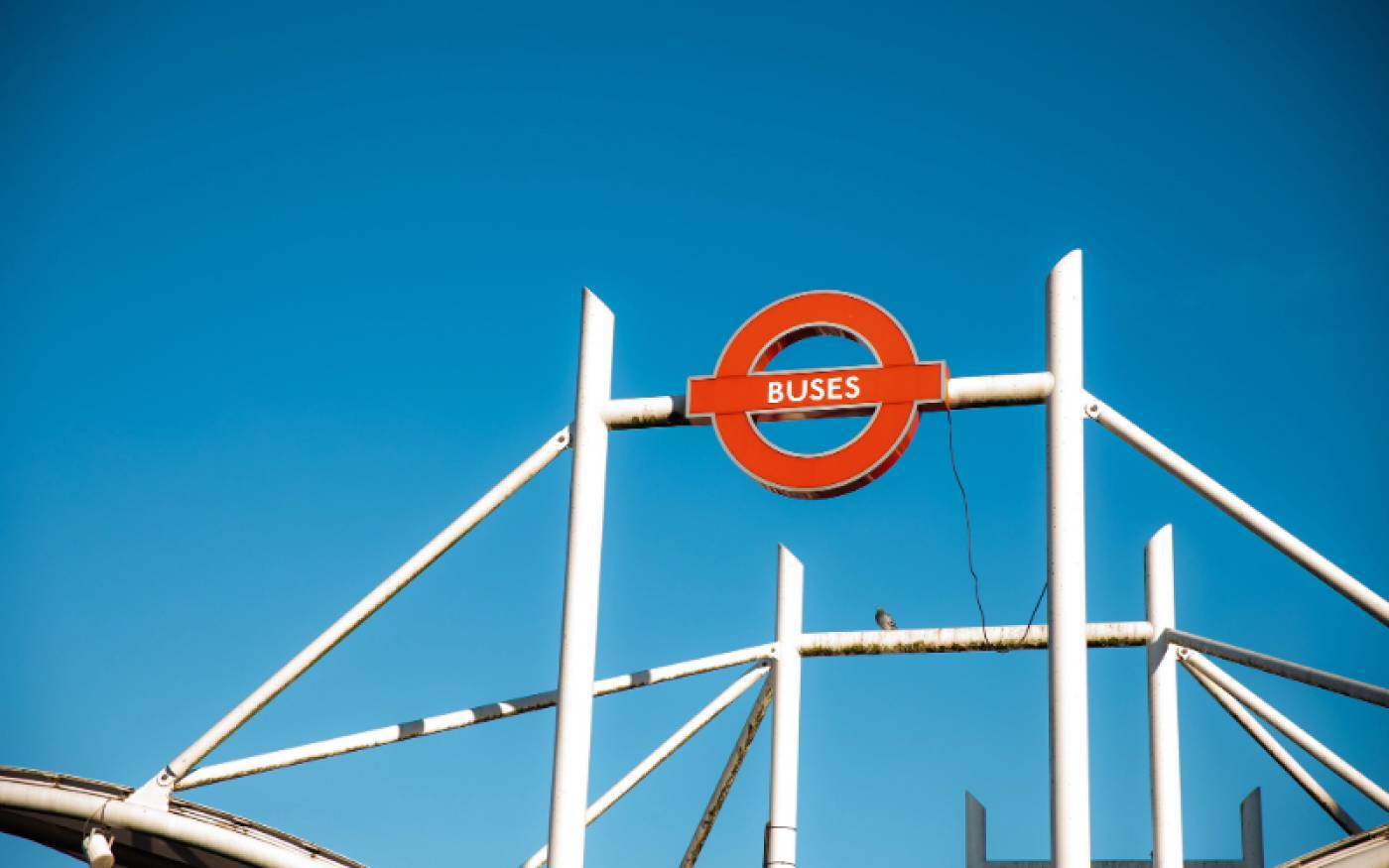
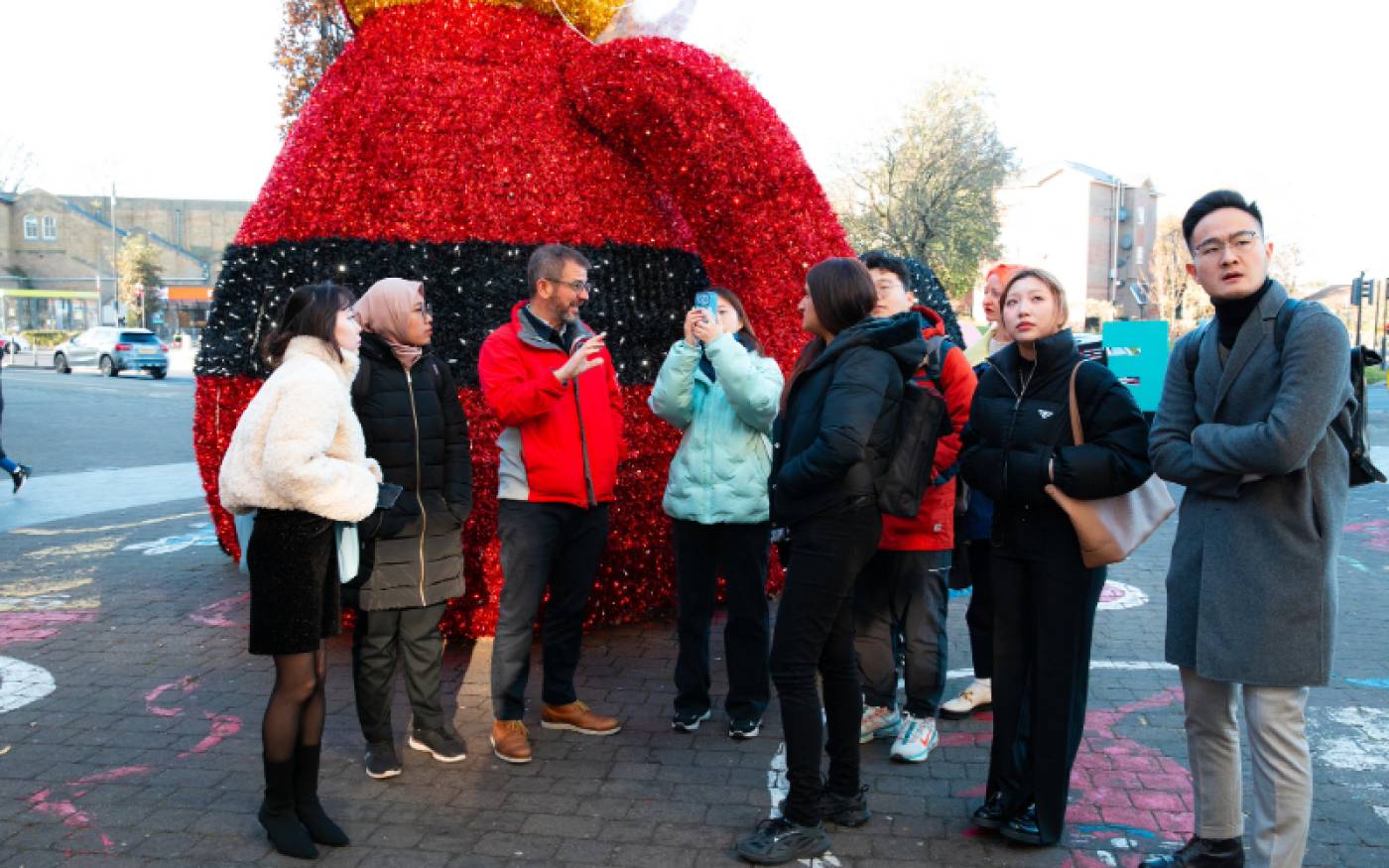
This year, our students engaged with organisations in London including GLA Economics, Enfield Council and Old Oak and Park Royal Development Corporation (OPDC) to address vital city economy issues. Our students' work covers enhancing urban life through transport and connectivity, retrofitting homes, the economic role of 'meanwhile spaces' in regeneration, and maximising social value in redevelopment.
The London Project 2022-23
Through working closely with our partner organisations, including the UK Department for Transport, Department for Levelling Up, Housing and Communities, Enfield Council, and London & Partners, our UED students investigated the distributional impacts of road user charges, the measurements of social return on investment in mixed-use residential development, the impacts of hybrid working on London, and the development of sustainable tourism in London.
- View the topics that the students focused on in their final group reports
- What distributional impacts are the road user charges (LEZ, ULEZ, CC) having in London? Are the charges fair, and how does the answer depend on the use of the revenues? With the Department for Transport
- What distributional impacts are the road user charges (LEZ, ULEZ, CC) having in London? Are the charges fair, and how does the answer depend on the use of the revenues? With the Department for Transport
- How might hybrid working change London (and other urban centres) and what is the role of government in ameliorating these changes? With the Department for Levelling Up Housing and Communities
- Social value at Meridian Water. With Enfield Council
- How is sustainable tourism best encouraged in London? With London & Partners
The London Project 2021-22
With the lingering effects of COVID-19 still felt across the UK, we adapted the London Project in this year into a hybrid format of online and on-site meetings and teaching sessions with our project partners, the Greater London Authority, Urban Solution, Hatch, Enfield Council, and German Development Bank.
Our students engaged with the role of culture and nightlife in London's economy and its recovery from COVID-19, investigated the lessons drawn from other global cities to decarbonise energy infrastructure, learnt how to value carbon savings in London-based regeneration schemes, and developed an understanding of the problems and opportunities created through the 'Building Back Better' campaign for London.
- View the topics that the students focused on in their final group reports
- How and why are culture and nightlife important to London's economy and its recovery from COVID-19? With the Greater London Authority
- What innovative models used by other global cities to decarbonise energy infrastructure could be applied to London and how? With the Greater London Authority
- Valuing carbon savings in regeneration schemes. With Enfield Council
- How is the UK government's response to COVID, 'Build Back Better', creating new problems and opportunities for London? With Dr Tim Heinemann, a senior economist at KfW Development Bank
The London Project 2020-21
In response to COVID-19 pandemic, we delivered our practice module in a fully-online format for the first time. Our students rose magnificently to the challenges of working with our partner organisations (the Greater London Authority, Enfield Council and the UK Ministry of Housing, Communities and Local Government - now the Department for Levelling Up, Housing and Communities) despite not being located in London alongside them.
Our students investigated issues arising from the pandemic, including social enterprise service provision and impacts on the housing market. As a result, our students and partners developed a clearer understanding of how 'meanwhile usage' potentially supports placemaking, and explored approaches for how to identify the economic benefits arising from good design in urban developments.
- Read the students' research reports
How have London's social enterprises fared during the pandemic, and what are the implications?
Read the Social enterprise report
By Ashley Richardson, Binyu Wang, Ellen Ahn, Heesu Jeon, Hoodo Richter, Saad Alsabah, Shamira Sendagala, Shuqi Su and Yasin Omar.
What effects might COVID-19 have on the demand and supply of housing of different tenures and types in London, with reference to other global cities?
By Alia Tolba, Chung Ching Lo, Dixuan Zhao, Khazina Kazmi, Izzudin Al Faras, Mao Chen, Siyu Wang, Tanyaradzwa Kasinganeti and Tanyeli Guler.
What are the economic benefits of good design in urban developments (across the residential, commercial and infrastructure types), and how would you go about valuing these for cost-benefit analysis and other pruposes?- Read Good growth by design
- By Aya Aboelenen, Abdullah Arshad, Armando Espitia-Arevalo, Amin Rirash, Fasheng Liang, Genevieve Sundaresan, Juliano Cavalli de Meira, Qi Ru and Xinyue Yi
What does 'meanwhile' activity deliver in terms of placemaking for future permanent residential developments, and can it be measured?
Read Meanwhile at Meridian Water
By Aisha Abdi, Consolata Ndungu, Hope McGee, Jiaying Xue, Qingya Cheng, Tatsunari Kubonishi, Yan Xu and Yaseemen Safaie.
The London Project 2019-20
- View the topics that the students focused on in their final group reports:
- Does major infrastructure deliver the economic and wider socio-economic impacts that are expected? An assessment of major infrastructure. Comparing economic appraisals in business cases and Economic Impact Assessments to the actual changes that result from projects. With Jacobs
- How can we value green spaces in London? How might the value proposition change with the introduction of the national park city concept? With the Greater London Authority, Green Infrastructure
- Does London have an innovation cluster? If so, how is it impacting on local labour markets and what policies should be developed to maximise inclusive growth outcomes of the cluster formation? With the Greater London Authority, Economics
- What have been the impacts on the local private rented market of introducing licensing schemes? With the London Borough of Haringey
The London Project 2018-19
- View the topics that the students focused on in their final group reports:
- How have other international cities adopted and implemented circular economy policy and programmes. What impact are they having on economic development and what lessons can Old Oak Common and Park Royal Development Corporation learn from approaches of other cities? With Old Oak Common and Park Royal Development Corporation
- Off the back of the Thames Estuary Commission Report and the announcement of Local Industrial Strategies, we are looking closely at the economic vision for London’s hinterlands, many of which underperform despite proximity to the capital. What future for Gravesend? With the Department for Business, Energy and Industrial Strategy
- Learning from international experience of highspeed rail, what effect is HS2 likely to have on urban development in Euston? With High Speed 2 Limited
- What are the benefits and costs on cities of the short-term lettings model? In this context, what is the optimum regulatory framework for short-term lettings companies in London? With the Greater London Authority Housing Team
The London Project 2017-18
- View the topics that the students focused on in their final group reports:
- How does the council tax system in England impact on Local Authorities incentives to provide housing and how does this compare to incentives created by tax systems in other countries? With the Department of Communities and Local Government
- Are there any international examples of successful intensification of suburbs that London should learn from as it tries to build more homes? Intensification for this project should include use of space and will cover employment and other land uses. With the Greater London Authority Housing Team
- What are the implications of Brexit on London's current and prospective international students? With the Greater London Authority Economics
- What are the challenges and needs of the creative industries located in Park Royal and what measures are required to attract this sector to the OPDC area in the short, medium and long term? With Old Oak and Park Royal Development Corporation
The London Project 2016-17
- View the topics that the students focused on in their final group reports:
- Tech City – the cluster of high growth creative and digital businesses in and around Shoreditch – is emerging as one of London and the UK’s key creators of new jobs. However, there are significant barriers to entry into this labour market - in particular for households in areas of high deprivation in Hackney, on the doorstep of Tech City. Please explore potential public policy interventions to enable local residents, and in particular young people, to fully benefit from the job opportunities being created by Tech City. With the London Borough of Hackney
- What are the other infrastructure mapping applications available globally and how do they help cities to deliver their smart cities agenda? Who are their contributors? What do each of these contributors offer to the application? What has worked and what are the benefits of such applications? With the Greater London Authority, Economics and Business Policy Team
- What is the overall impact on London of the loss in industrial land in London on the logistics industry? With the Greater London Authority Economics and Transport for London
- Where - and how - should new homes be built to maximise the net social and economic benefits to existing communities? The UK Government is attempting to deliver around 200,000 homes a year which involve a number of trade-offs that this research will need to consider. For example, where should the homes be built? What are the advantages of using brown field sites over greenfield sties? With the Department for Communities and Local Government
- With a rise in agile and mobile working, how are shared workspaces such as serviced offices and accelerators, and co-working spaces, meeting different types of business needs?
 Close
Close


